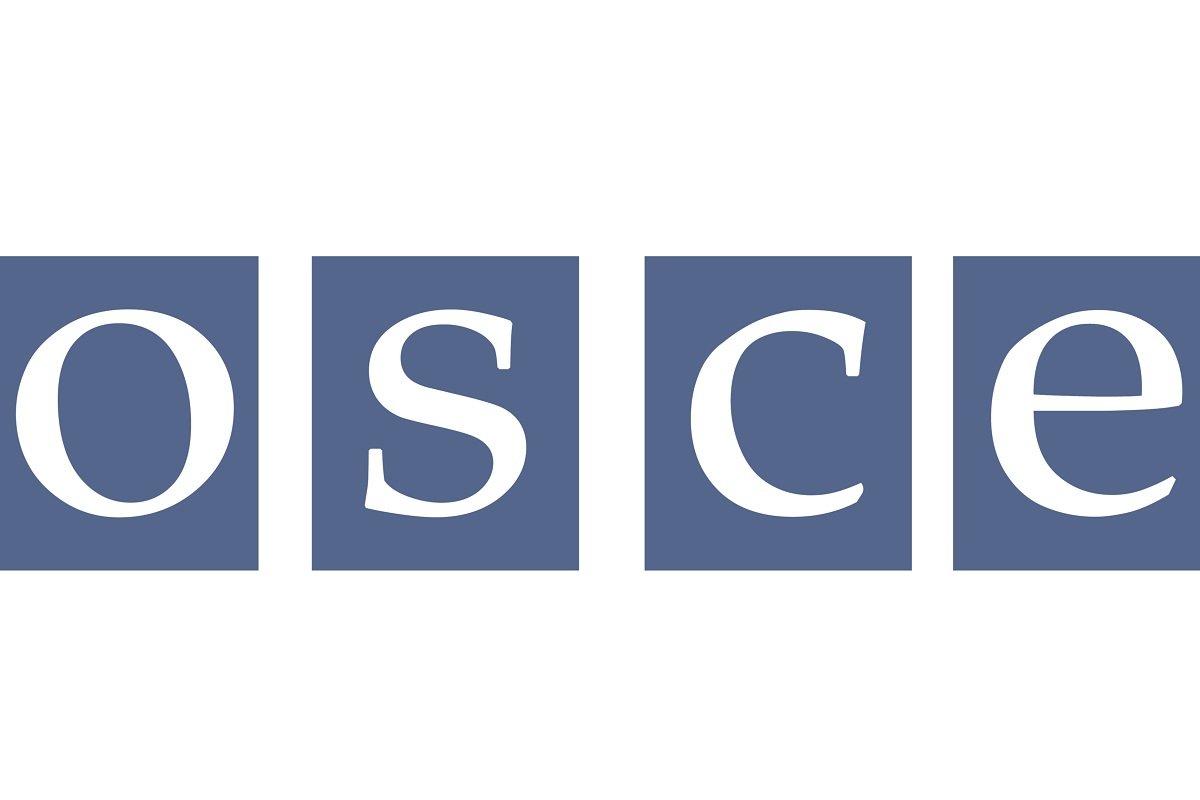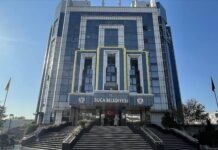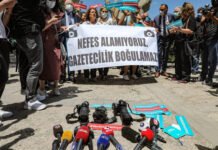Turkey’s main opposition Republican People’s Party (CHP) leader Kemal Kılıçdaroğlu has urged the Assembly of Parliamentarians of the Organization for Security and Cooperation in Europe (OSCE) to examine the heavy presure of the Turkish government under the rule of autocratic President Recep Tayip Erdoğan on the Turkish media.
Kılıçdaroğlu met the delegation of senior OSCE parliamentarians on Thursday and reportedly stressed that the Turkish government was putting “huge pressure” on the Turkish media, particularly after the July 15, 2016 coup attempt.
A senior delegation of parliamentarians from the OSCE Parliamentary Assembly, headed by OSCE PA Vice-President George Tsereteli, has oncluded a series of meetings in İstanbul and Ankara on Thursday, and noted the extraordinary challenges faced by Turkey, including from terrorism, large migration flows, and the aftermath of the July 2016 failed coup.
According to a press statement by OSCE, the delegation reiterated the strong solidarity of the Parliamentary Assembly with the Turkish people in their fight for the preservation of democratic institutions following the July 2016 failed coup.
“Facing the multiple challenges of hosting millions of refugees, being on the frontline of the fight against terrorism, and still addressing the consequences of a failed coup all place a very heavy burden on the people and the institutions of Turkey. We stand with them in dealing with all of these issues, and will continue to offer any support we can,” said Tsereteli.
“As the Turkish people seek to defend democracy, full transparency is the best tool to rebuild trust and ensure rule of law. We encourage the government to bring as much clarity and openness as possible to the processes being pursued to fight the threats facing the country, and encourage continued active work and oversight by the media and civil society,” continued Tsereteli.
According to OSCE statement, the delegation members stressed the importance of making appropriate and proportionate use of the extraordinary measures provided by the state of emergency, and noted the intention of the government to this end. Noting that tens of thousands of public servants have been dismissed from their jobs, with consequences for social cohesion, the delegation also reiterated the need, especially under the state of emergency, for clear legal procedures and appeals processes to safeguard the rights of all people and ensure against innocents being caught in proceedings. At a time of large turnover of staff in the judiciary, delegation members stressed that the effective independence of the judicial branch must be maintained.
The OSCE PA members expressed their hope that the Turkish parliament would continue to play an important role in public debate on the identified challenges and oversight to ensure adherence to fundamental freedoms. In that regard, delegation members reiterated previously expressed concerns over the arrests of parliamentarians.
The delegation encouraged the authorities to make full use of the various tools provided by the OSCE in relation to the threats facing the country. They also noted that the OSCE PA and other bodies can be effective fora to help communicate to the international community the steps being taken. The OSCE Parliamentary Assembly will meet for its Annual Session in Minsk, Belarus, from July 5 to 9
The OSCE PA delegation met with Speaker of the Turkish Parliament İsmail Kahraman, Deputy Prime Minister Numan Kurtulmus, Foreign Minister Mevlut Çavusoğlu, Minister of Justice Bekir Bozdağ, leaders from all opposition parties represented in parliament, and Members of the Turkish OSCE PA Delegation headed by Vedat Bilgin. They also met with human rights and free speech advocates including from Amnesty International and Reporters Without Borders, as well as several legal experts.
The delegation was headed by OSCE PA Vice-President George Tsereteli (MP, Georgia) and included Vice-President Azay Guliyev (MP, Azerbaijan), and the Chair and Vice-Chair of the PA’s human rights committee, Ignacio Sanchez Amor (MP, Spain) Ivana Dobesova (MP, Czech Republic), OSCE PA Secretary General Roberto Montella and Mary Albon, Senior Adviser to the OSCE Secretary General.
Turkey is the leading jailer of journalists in the world. The Stockholm Center for Freedom (SCF) has documented that 264 journalists are now in jails as of May 27, most in pre-trial detention languishing in notorious Turkish prisons without even a conviction. Of those in Turkish prisons, 241 are arrested pending trial, only 23 journalists remain convicted and serving time in Turkish prisons. An outstanding detention warrants remain for 105 journalists who live in exile or remain at large in Turkey.
Detaining tens of thousands of people over alleged links to the movement, the government also closed down more than 180 media outlets after the coup attempt.
A military coup attempt on July 15 killed over 240 people. Immediately after the putsch, the Justice and Development Party (AKP) government along with Turkey’s autocratic President Recep Tayyip Erdoğan pinned the blame on the Gülen movement.
Fethullah Gülen, who inspired the movement, strongly denied having any role in the failed coup and called for an international investigation into it, but President Erdoğan — calling the coup attempt “a gift from God” — and the government initiated a widespread purge aimed at cleansing sympathizers of the movement from within state institutions, dehumanizing its popular figures and putting them in custody.
According to a report by the state-run Anadolu news agency on May 28, 154,694 individuals have been detained and 50,136 have been jailed due to alleged Gülen links since the failed coup.
June 10, 2017















